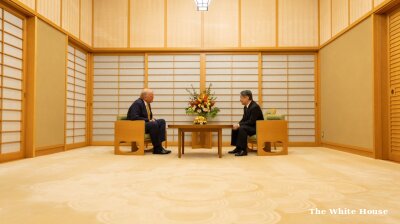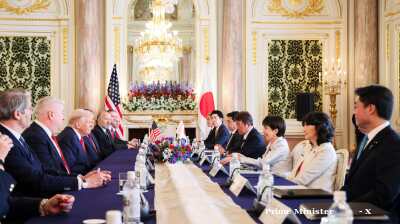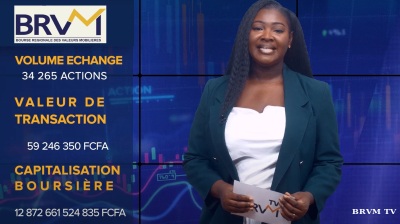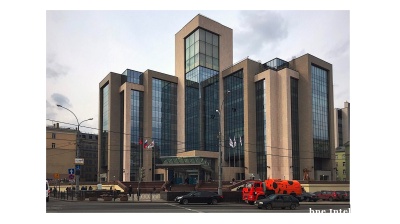Prime Minister Narendra Modi spent a busy day with his Russian counterparts negotiating energy and business deals and hobnobbing with Russia’s elite as India seeks to deepen an already friendly partnership with Russia to fuel its own rapid economic growth during the Russo-India summit in Moscow on July 9.
Modi is making a symbolic first foreign trip to Russia, following the recent election win for his Bharatiya Janata Party (BJP) party to deepen India’s ties with Russia, which has emerged as a major trade partner following the start of the war in Ukraine.
The official Russian-Indian negotiations will be held both in a narrow and in an expanded format. The parties will discuss not only bilateral cooperation, but also the international situation, the Kremlin said in a statement.
Topics on the agenda were energy security, the rupee-ruble exchange mechanisms, investment and trade as well as the general international geopolitical tensions.
Warming relations
India has become a core member of the expanded BRICS+ group, which is expected to take in more members at this October’s annual summit hosted by Russia in Kazan. And India took the lead at last year’s G20 summit, which was also expanded with the inclusion of the African Union that contains all 55 countries in Africa.
Modi is emerging as a key player in the current East-West showdown, as Delhi is one of the few players that maintains cordial relations with all of Moscow, Beijing, Washington and Brussels.
Modi has met with Putin a total of 16 times since he took power, and relations between the two men are reportedly warm. Upon arrival in Moscow, Modi travelled in an Aurus to the residence of the Russian President in Novo-Ogaryovo. There he and Putin talked over a cup of tea and took a walk in the park "with a free agenda, one on one," the Kremlin reported.
India values its long-standing close ties that date back to Soviet times and shares Putin’s objection to the “unipolar” world dominated by the US. It sees its close ties with Russia as being in its national interests and has refused to participate in the sanction’s regime on Russia.
Trade deficit
As bne IntelliNews has reported, the partners face several practical problems, including a massive, unbalanced trade regime: India exports just under $5bn worth of goods to Russia a year, whereas currently its importing over $40bn from Russia, primarily oil. Foreign Secretary of India Vinay Kwatra confirmed that bilateral economic issues, namely the "trade imbalance," will also be on the agenda.
During their meeting Modi and Putin set a new goal for mutual trade to grow from circa $60bn a year now to $100bn by 2030. Previously Russia set a similar goal for trade with China to top $200bn by 2025 – a goal that was achieved in 2023. According to the Ministry of Commerce of India, in the 2023-24 financial year, bilateral trade between the countries reached a historical high of $65.7bn. But more than 90% of trade turnover is imported from Russia, primarily oil and petroleum products and fertilisers.
Indian Prime Minister Narendra Modi arrived in Moscow the day before (and Vladimir Putin managed to show him the stables in Novo-Ogarevo), but serious negotiations will begin today. This is Modi's first trip to Moscow since 2019 and the first personal meeting of heads of state after a three-year break.
Both leaders are at the beginning of their next terms. Vladimir Putin was recently re-elected to his fifth presidential term, Narendra Modi's party won the last elections in India, but lost its majority in parliament. However, this did not stop Modi from seeking a third term as prime minister.
The war in Ukraine has largely changed the balance of Russian-Indian relations. Moscow, having broken with the West, began to rapidly turn towards China, with which India has difficult relations. At the same time, Moscow’s leverage over New Delhi and Beijing is shrinking, since India and China have more of their own capabilities than before, and new partners have emerged that offer more than Russia.
Nevertheless, Modi decided to make his first visit to Moscow after his re-election. The reason is Moscow’s growing dependence on Beijing, which New Delhi is watching with alarm, writes Bloomberg.
Oil
The key issues for discussion are primarily economic; politically, Russia has little to offer India. According to the Ministry of Commerce of India, in the 2023-24 financial year, bilateral trade between the countries reached a historical high of $65.7bn. But more than 90% of trade turnover is imported from Russia, primarily oil and petroleum products and fertilisers.
Unlike China, India managed almost without Russian oil before the war, and now has become the second buyer after China, sometimes taking first place (in June - 2.13 million bpd). Russia's share in Indian oil imports exceeds 40%.
The price ceiling on Russian oil introduced by the G7 countries had little effect on Indian imports. The Indian Express, citing sources, writes that the restrictions "have at best had a minor and short-term impact" on oil imports from Russia to India. According to the publication’s interlocutors, Indian refineries avoid tankers subject to “explicit Western sanctions”, but, for example, accept Sovcomflot tankers. Moreover, the Indian Reliance has just signed a one-year contract with Rosneft to purchase at least 3mn barrels of oil per month for rubles. Previously, New Delhi had to pay Moscow in UAE dirhams and Chinese yuan, which is not in India’s national interests.
The Economic Times writes that a long-term agreement on discounted oil supplies is on the agenda of the leaders' negotiations.
Rupees
The second topic is the organisation of foreign trade settlements, an official from the Russian financial and economic bloc explained to The Bell. “You can agree on projects and investments, but how to pay?” he said.
As of 2024, accumulated Russian investments in the Indian economy are estimated at $12bn. This figure also includes investments by Rosneft in the purchase of a 49% stake in the oil company Essar Oil ($3.9bn), a joint venture for the production of BrahMos rockets, and investments by Rosatom “in nuclear power plants and other projects.”
Perhaps the amount will increase if the issue of limitedly convertible rupees stuck in India, which Russia receives for oil sales, is resolved. This money is not as much as it seems: two Russian officials told The Bell that “the amount is definitely less than $10bn and continues to decline.”
“Russian rupees” are accumulated in India using the international settlement mechanism invented in mid-2022 by the Reserve Bank of India. It works like this: foreign banks enter into a partnership agreement with an Indian bank, which opens special vostro accounts (SRVA), from which it makes transactions with rupees in the interests of the foreign bank. Such rupees can be used to pay for goods and services from India, but it is almost impossible to withdraw them from the country. It is clear that permission to withdraw (for example, to a Russian portfolio investor in India) can only be political, and Putin cannot help but talk about this with Modi.
Russia and India already settle some 70% of their mutual trade in national currencies, according to the Kremlin, as part of Russia and China’s drive to de-dollarise the world of trade. However, the topic of the rupee-ruble exchange mechanism was high on the agenda and Modi was hoping to encourage Russians to use some of their trade surplus money to reinvest into the Indian economy to further accelerate its growth.
A step in that direction came with the announcement that the Russian Direct Investment Fund (RDIF) and its partners will invest up to RUB100bn ($1.1bn) in Russian companies entering the Indian market. Russia’s sovereign wealth fund has agreed on mutual support for businesses with the National Investment Promotion Agency of the Republic of India (Invest India).
“Joining efforts to implement investments with Invest India will facilitate the accelerated implementation of new bilateral investment projects in a wide range of industries,” said RDIF CEO Kirill Dmitriev.
The lack of free convertibility of the rupee is a major problem for Russo-Indian trade relations, but more generally the two leaders will have almost certainly discuss how to sanction-proof their banking and settlement systems, which was also high on the agenda in Putin’s talks with Chinese President Xi Jinping in May. The topic of cash payments with the use of cards of national payment systems was discussed as Russia seeks to build an alternative international payments to rival SWIFT.
"Certainly, [the use of national payment systems] was discussed. This is an important element of trade support infrastructure, interaction in general and not only trade in goods, and investment interaction," Deputy Head of the Presidential Administration Maxim Oreshkin told reporters.
Business deals
Modi was in Russia as he wants to recruit Russia’s help to fuel India’s accelerating growth. Russia is the source of many of the inputs that India needs including fertilisers, oil and nuclear power, and they also enjoy big mutual markets.
India is a heavily agricultural economy but relies heavily on Russia for fertilisers. Friendly ties with Russia helped India meet farmers’ need for fertilisers in a time of crisis, Modi told Putin.
"The past five years were difficult for the whole world. There were various conflicts and crises. First, there was the coronavirus, and then conflicts and disagreements emerged. While the world was facing food, energy and fertiliser security crises, our friendship helped us prevent such difficulties for Indian farmers," he said ahead of formal talks between the Indian and Russian delegations at the Kremlin. "We fully met their need for fertilisers. Our friendship with you played a special role.”
A source told TASS earlier that New Delhi saw food security and ways to ensure the interests of farmers as one of the key areas of Indian-Russian cooperation. Russia has been and remains an important fertiliser exporter to India. The country imported over 4.8mn tonnes of fertilisers from Russia last year.
Energy deals
India purchased almost no Russian oil before the war. Now, it is the second biggest buyer after China (in some months, it is biggest). In April, Indian exports of Russian oil reached a nine-month high of 1.96mn barrels per day, rising to 2.1mn bpd in May and 2.13mn bpd in June, according to data from Kpler cited by RBC on July 9. Almost 41% of India’s oil imports now come from Russia.
In June, the supply of Urals crude to India increased by 13% year on year and by 2.2% compared to May, setting a historical record.
Despite the significant rise in Urals shipments, total imports of Russian oil in June were slightly below the peak of 2.15mn bpd recorded in May 2023, marking the second-highest figure in the history of observations.
Imports of Far Eastern grades, such as ESPO (Eastern Siberia-Pacific Ocean) and Sokol, have declined compared to last year. ESPO imports averaged 103,000 bpd, down from 107,000 bpd in 2023, while Sokol imports averaged 51,000 bpd, compared to 152,000 bpd last year.
"Urals is more suitable for Indian refineries, which are among the deepest in terms of refining. In addition, of course, price plays a big role. ESPO is sold at a discount of one dollar to a barrel of Brent, and Urals is consistently two to three dollars cheaper per barrel. At the same time, Urals volumes are larger, and it is not being bought up by China as much as ESPO," explained Viktor Katona, head of oil market analysis at Kpler.
Modi was seeking to lock in long-term supplies of Russian oil to ensure the country’s energy security, although details of the talks were not released and Indian companies are increasing their participation in Russian exploration and development projects.
"As regards long-term cooperation, Russia and India are interested in such relations. We already have the joint oil refinery project. We are also interested in long-term cooperation for supplies; such forms of the agreement are definitely considered," Novak said.
"As of today, our Indian partners participate in the implementation of a number of projects, on the Arctic shelf, in Sakhalin. We consider continuation of this cooperation in the future," Russian Deputy Prime Minister Alexander Novak said, adding that India’s national oil company ONGC is participating in the Sakhalin 1 gas project and is in the process of formalising the company’s shareholding now, Novak added.
Russia and India are exploring the possibility of expanding cooperation in the gas sector, including through increase of gas supplies, Novak told reporters. Russia already delivers liquefied natural gas (LNG) in the volume of around 3mn tonnes per year (tpy) to India, and the volume may be increased in the future, according to Novak who took part in the Russian-Indian talks.
"First, LNG [amounting to] 3mn tpd is already supplied now. This is Russian gas, from Russian projects. Second, fundamentally, there are prospects of expanding cooperation in the gas sector and supplies of Russian gas," he said, adding that the issue is not only about increase of LNG supplies.
The share of natural gas in India’s energy balance is to grow from 6.5% in 2020 to 15% by 2030. In absolute terms, this may mean growth from current 60bn cubic metres to 115 bcm in 2030.
Energy security is not limited to the oil trade; India has already put into operation the first and second power units of the Kudankulam nuclear power plant (NPP), which is being built with Russian assistance. Uranium is the new gas and the Kremlin has been using exports of its world-class nuclear technology, and the 60-year fuel and maintenance contracts, as a way to bind its partners more closely to Russia.
Russia has extended an offer to collaborate with India on the construction of small tropical NPPs, with a proposal for deep localisation that includes transferring the construction segment to New Delhi, according to Alexey Likhachev, chief executive officer of the state-run corporation Rosatom.
"We offer cooperation possibilities for construction of tropical stations," Likhachev said during a visit of Russian President Vladimir Putin and Indian Prime Minister Narendra Modi to the Atom pavilion, "with very deep localisation," he added, stressing the potential for transferring the entire construction process to India. "We can transfer the whole construction part to you," he told Modi.
The nuclear sector has been a cornerstone of Russia-India relations. Power units No. 1 and No. 2 of the Kudankulam NPP, constructed with Russian assistance since 1998, are already operational. Construction of power units No. 3, No. 4, No. 5, and No. 6 is ongoing, with completion expected by 2027. Additionally, the Indian Ministry of External Affairs is exploring sites for further facilities. In December 2021, New Delhi committed to providing a location for the construction of a second Russia-designed NPP.
Ukraine war and weapons
The war in Ukraine did feature in the talks, with Modi offering his condolences to those that lost their lives in Russia’s massive missile attack on Kyiv on July 8. In an embarrassing moment, Modi singled out the Okhmatdyt children’s hospital in Kyiv that was hit during the attack, for which the Kremlin has denied responsibility.
“I know that war cannot solve problems, solutions and peace talks can't succeed among bombs, guns and bullets. And we need to find a way to peace through dialogue,” Modi told Putin in televised remarks at the Kremlin.
However, Modi did not push hard on the Ukraine question and India has been holding a neutral position on Russia’s special military operation. Indian experts told bne IntelliNews that any discussions of Ukraine will probably be low key, as Modi doesn’t want to get dragged into that conflict, where overt support for Russia will damage his otherwise good relations with Washington.
One of the factors staying Modi’s hand is India’s ongoing dependence on Russia to equip its own army. Kwatra highlighted defence cooperation between the two states as "an important segment of the privileged strategic partnership." He stressed that the countries remain in full contact on this issue.
India is in the process of buying Russia’s advanced S-400 air defence system that it intends to deploy on both its eastern and western borders, where it has uneasy relations with China and Pakistan respectively. The S-400 is Russia’s most advanced surface-to-air missile and considered to be world-class defensive weapons system.
Russia and India view military and military-technical cooperation as a cornerstone of their privileged partnership and will develop it further, according to a joint statement adopted after the results of the 22nd Russian-Indian annual summit on Tuesday, 9 July.
"In view of India’s aspiration for self-sufficiency, the partnership will currently refocus on joint R&D and experimental design work, the joint development and production of advanced defence technologies and systems," the statement reads.
"The parties reaffirmed their intention to increase the number of joint measures in military cooperation and expand military delegation exchanges," it says.
India and Russia are also discussing cooperation in a space programme.
The last time Modi visited Russia was in 2019 to participate in the Eastern Economic Forum. In turn, Putin was in India on a visit in 2021. In total, the Russian leader visited India nine times during his tenure at the top post. In accordance with the Declaration of Strategic Partnership of 2000, the leaders of Russia and India must meet annually and this meeting will the 22nd in the series.
Modi has stated he will come in Russia again in October to attend a BRICS summit in Kazan, Russian Foreign Minister Sergey Lavrov said.
"Narendra Modi said that he is glad to accept [Russian] President [Vladimir] Putin’s invitation and will take part in the BRICS summit in Kazan this October," he said.
News

US-China trade talks deliver breakthrough as markets rally ahead of Trump-Xi meeting at APEC
How and if China will react to a US-Japan rare earths deal remains to be seen but Beijing has said it will suspend its restrictions on rare earth metal exports in what is a move likely to ease pressure on the US tech and defence sectors.

US, Japan sign rare earths deal to ‘secure’ supply chains
The two leaders signed an agreement establishing a framework for cooperation in the mining and processing of rare earths and other essential minerals; a move that underscores growing anxieties over China’s dominance in the sector.
.jpeg)
Mexico secures trade extension with US, averting November 1 tariff escalation
US President Donald Trump and Mexican President Claudia Sheinbaum have agreed to extend a critical trade deadline by several weeks, granting negotiators additional time to resolve 54 outstanding commercial barriers between the nations.

West Africa’s BRVM market cap hits record $21.2bn driven by telecoms, banks
West Africa’s regional bourse hit a record market capitalisation, up 29% YTD, supported by strong performance among telecom and banking stocks, and rising participation from domestic institutional investors.




